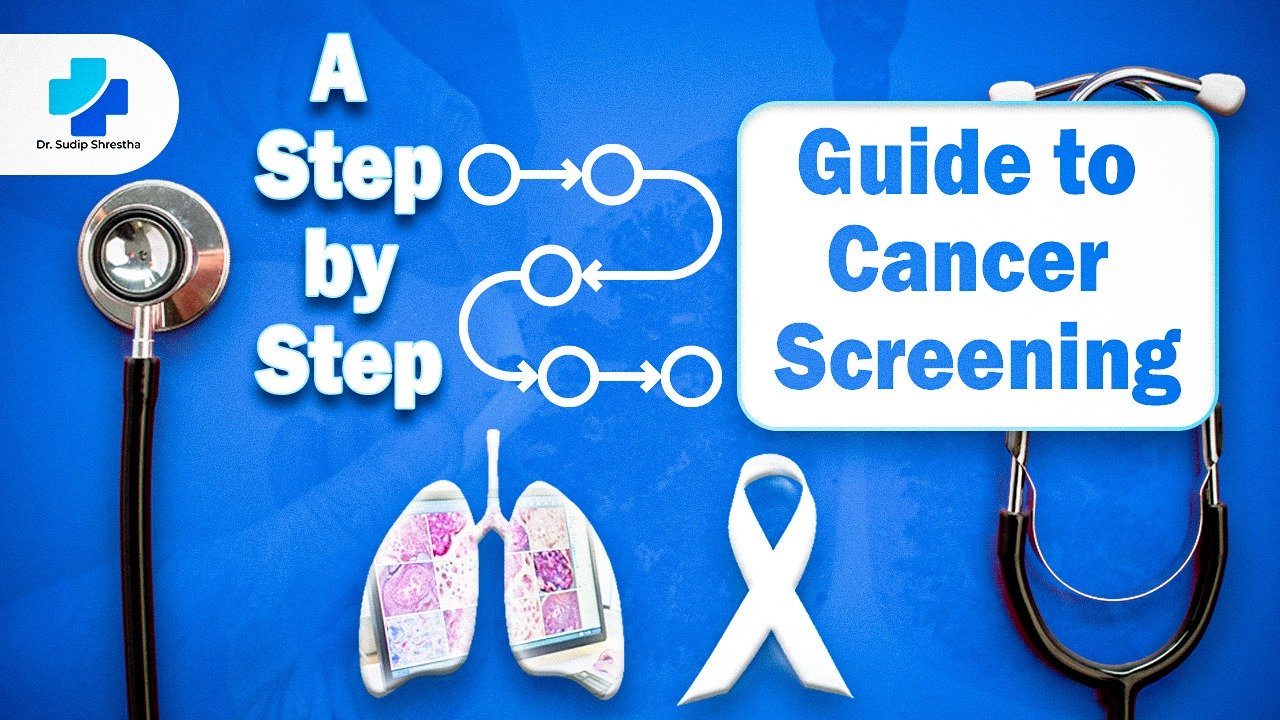Introduction
Early detection of cancer through screening is a cornerstone of effective cancer care. Cancer screening involves a series of tests designed to identify potential signs of cancer before symptoms appear. This proactive approach can lead to earlier treatment, improved survival rates, and in some cases, complete cure. Dr. Sudip Shrestha, a renowned oncologist in Nepal, emphasizes the importance of cancer screening as a preventive measure and a key step toward better health outcomes.
What is Cancer Screening?
Cancer screening is the process of testing for cancer or precancerous conditions in individuals who do not show any symptoms. These tests are designed to detect cancer at an early stage, where treatment is more likely to be successful. However, it is important to note that screening tests do not diagnose cancer; instead, they flag potential abnormalities that may require further investigation.
Benefits of Cancer Screening
- Detects early changes in the body that could lead to cancer.
- Identifies cancer before symptoms develop, increasing treatment success.
- Helps prevent cancer from spreading to other areas of the body.
Limitations of Cancer Screening
- False positives: A test result may incorrectly indicate cancer.
- False negatives: A test result may fail to detect existing cancer.
Who Should Consider Cancer Screening?
Screening guidelines vary based on factors such as age, gender, family history, and personal risk factors. Generally, regular screening begins in your 40s. However, individuals with a family history of cancer or pre-cancerous conditions may need to start earlier.
Risk Factors to Consider
- Family history of cancer diagnosed at an early age.
- Genetic predispositions such as BRCA mutations.
- Personal history of pre-cancerous conditions or certain diseases like inflammatory bowel disease.
For personalized advice, consult with a healthcare provider or cancer specialist like Dr. Sudip Shrestha.
Common Cancer Screening Tests
Breast Cancer
- Test: Mammogram
- Recommended Age:
- 40–49: Annual or biennial mammograms.
- 50–74: Mammograms every two years.
- Additional Tools: MRI for individuals with a high genetic risk.
Prostate Cancer
- Test: Digital rectal exam (DRE) and Prostate-Specific Antigen (PSA) blood test.
- Recommended Age: 45+ for men with average risk.
Cervical Cancer
- Test: Pap smear and HPV test.
- Recommended Age:
- 21–29: Pap smear every three years.
- 30+: Pap smear and HPV test every five years or Pap smear alone every three years.
- Test: Low-dose computed tomography (LDCT).
- Who Should Consider: Individuals aged 50–80 with a history of heavy smoking.
Colorectal Cancer
- Tests: Colonoscopy, fecal tests, sigmoidoscopy, or virtual colonoscopy.
- Recommended Age: 45+ for individuals at average risk.
Skin Cancer
- Test: Visual examination by a dermatologist.
- Frequency: Annually, especially for individuals with high sun exposure or a family history of skin cancer.
How to Prepare for Cancer Screening
- Consult Your Doctor: Discuss your risk factors and the appropriate tests for your age and medical history.
- Understand the Procedure: Learn what each test involves to reduce anxiety.
- Follow Pre-Test Instructions: For example, fasting may be required before certain blood tests.
- Plan for Results: Be prepared for follow-up tests if initial results show abnormalities.
Insights from Dr. Sudip Shrestha
Dr. Sudip Shrestha emphasizes a patient-centric approach to cancer screening, advocating for individualized care based on a person’s unique risk profile. With his extensive expertise in oncology, he encourages regular health checkups and timely cancer screening as part of a holistic health strategy.
Addressing Common Questions About Cancer Screening
1. When Will I Receive My Results?
Results from screenings like blood tests or imaging typically take a few days to a week. Your healthcare provider will discuss the findings with you.
2. What Happens If My Results Show Abnormalities?
An abnormal result doesn’t necessarily mean cancer. Further diagnostic tests, such as a biopsy, may be needed to confirm the findings.
3. How Often Should I Be Screened?
The frequency depends on the type of test and your personal risk factors. Consult with your healthcare provider to create a screening schedule tailored to you.
The Role of Advanced Testing in Cancer Screening
Emerging technologies like the Galleri test, which detects multiple types of cancer through a blood sample, represent the future of early cancer detection. While not yet FDA-approved, such advancements highlight the evolving landscape of cancer care.
Conclusion
Cancer screening is a vital step toward early detection and prevention. By identifying cancer at its earliest stages, patients can pursue treatment options with the highest chances of success. Whether it’s scheduling a routine mammogram, colonoscopy, or consulting an expert like Dr. Sudip Shrestha, taking proactive steps today can safeguard your health tomorrow.
For expert advice and personalized cancer care, contact Dr. Sudip Shrestha and explore the best screening options for your needs.



